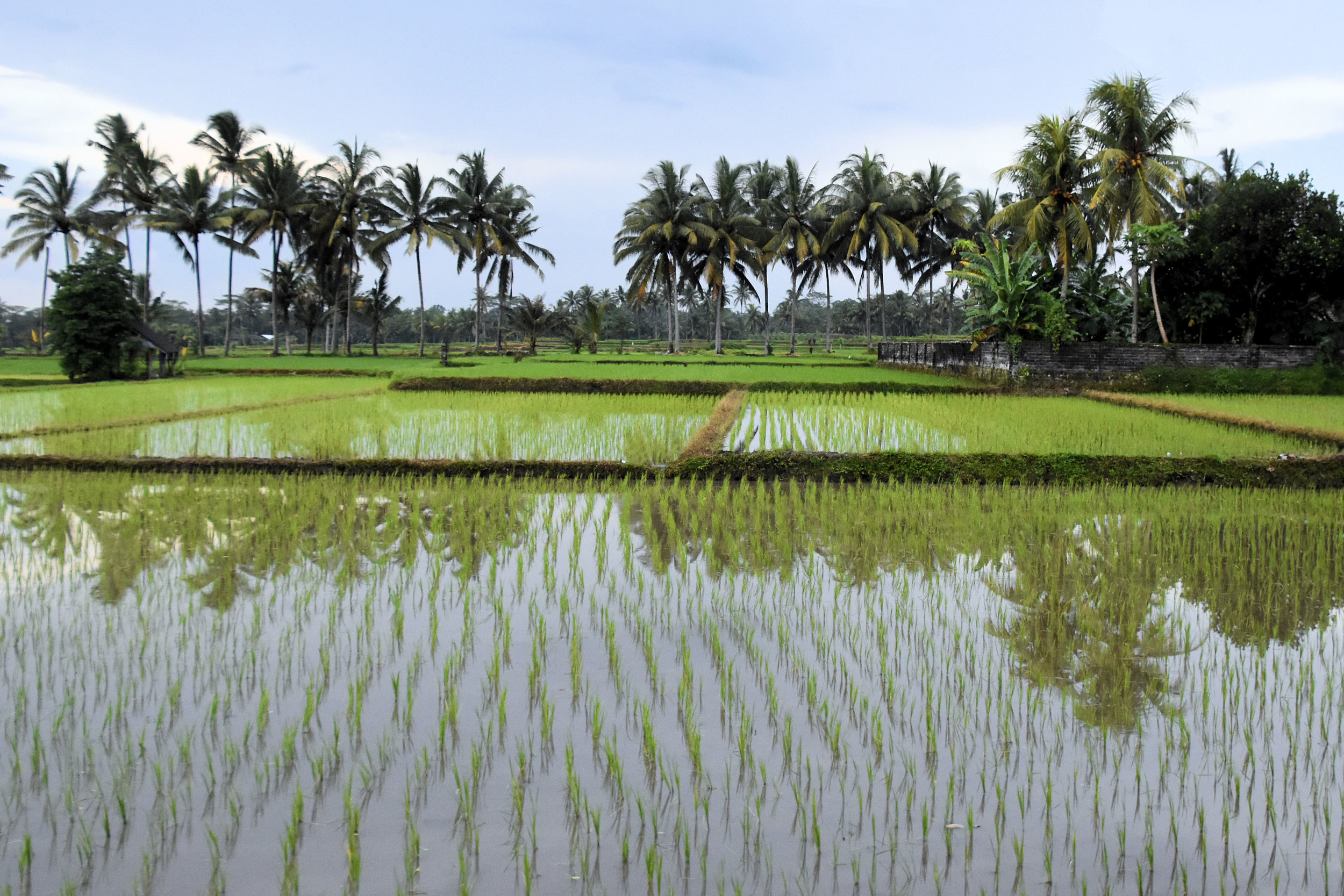Bali, Indonesia
Somebody should write a song about monsoon rains. They are iconic. There is a reason why nobody talks about monsoon sprinkles or monsoon mist. When the heavens open up during monsoon season, it pours volumes. First the rain water floods the streets, but eventually it has to go somewhere. In Bali, like on every tropical island, as the water drains away, it takes with it much of the garbage on the streets. Everything and anything that is not nailed down, ends up in the ocean. Plastic bottles, cigarette stubs, waste paper, plastic bags, oil residue, plastic rope, condoms – it all floats among the fishes and causes horrible deaths for many ocean creatures.
Aggressive grey long-tailed monkeys at the Uluwatu temple in southern Bali have a serious appetite for cell phones. Chasing them is pointless, especially when there are 400 of them. I wonder if they stash them somewhere in tree cavities. Bye bye beloved phone!
I consider the lack of care for the environment in developing nations a travesty. Is there no solution to the garbage in the streets and on the beaches? Somebody should do a study and find out how much garbage is actually washed into the oceans by surface water run-off in the tropics or blown into the waters by high winds, especially during hurricanes or typhoons. This is definitely a topic that occupies my mind often as I travel around the globe.
So, please forgive my cynicism when I read about the iconic rice terraces of Bali and learn how rice farmers on this Indonesian island care so much about “environmental balance”, “sustainability” and “nature being an equitable partner rather than a source to be exploited”. My first reaction is not very charitable. Really? How can you be so concerned about the environment when it affects your own livelihood but have a totally different attitude and not care when environmental degradation has global implications? I guess I just answered my own question: because it feeds their families.
Rice production on Bali is nothing new. Farmers have been growing this important food staple for millennia. What is unique about their approach to rice production is the subak, a community-based association of farmers who cooperatively share two important resource: water and manpower. The subak, a model developed in the 9th century, reflects the three philosophical concepts of tri hita karana, which brings together the realms of nature, spirit and the human world. In essence, subaks regulates the distribution of water from the mountain lakes to ensure that all farmers receive their fair share. By doing so, water resources are being carefully used and re-used in harmony with nature. Water is channeled passively through trenches and tunnels to flood the rice paddies at specific times during the crop cycle. No artificial fertilizers and pesticides are used.
The subaks also address the distribution of a labour force to ensure farmers have the manpower to plant and harvest their crops in time. Subak members work together to ensure that all rice farmers, no matter how much status they carry in the community, are treated equally.
The worship of Dewi Sri, the goddess of fertility and prosperity, completes the spiritual aspect of tri hita karana. Altars and temples are everywhere. So-called water temples, which are located at distribution points for water (e.g. lakes, rivers) are important places of worship and gifts offerings. In addition, every family’s home compound has a place set aside for altars and shrines. The role of spirituality in rice farming on Bali cannot be overstated.
Bali is a tourist’s paradise. It has beautiful beaches, an amazing culture, kind people and great seafood. But it is also overpopulated. With a size comparable to the tiny nation of Brunei in Borneo, Bali has 10 times the population. So, it is no wonder that you can find air pollution in Bali.
There are 1,200 subaks in Bali, each consisting of 50 to 400 smallholder farmers (average farm size is 0.8 ha). Each subak is managed separately but all use the same water source for the flooding of their rice paddies – Lake Bratan. The fact that this system of cooperative water management has survived for over 1,000 years is remarkable.
I started my commentary on a negative note but must say that I am impressed with Bali’s rice production system. The terraces are not only beautiful but also witness to a well-functioning, community-based, spirituality-driven and environmentally responsible network that has allowed for a peaceful sharing of a limited resource. With all the things I do find wrong with the island of Bali, the subak system is an impressive cultural feature that appears to be working just fine.


